Color Adjustment Blu-ray Movie
HomeColor Adjustment Blu-ray Movie 
Criterion | 1992 | 80 min | Not rated | No Release Date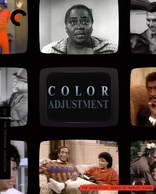
Price
Movie rating
7 | / 10 |
Blu-ray rating
| Users | 0.0 | |
| Reviewer | 4.5 | |
| Overall | 4.5 |
Overview
Color Adjustment (1992)
Picking up where the groundbreaking Ethnic Notions left off, this pioneering work of media studies by Marlon Riggs presents a complicated, challenging, and nuanced view of evolving racial attitudes as reflected in popular programs such as Amos 'n' Andy, Julia, All in the Family, Good Times, Roots, and The Cosby Show.
Director: Marlon Riggs| Documentary | 100% |
Specifications
Video
Video codec: MPEG-4 AVC
Video resolution: 1080p
Aspect ratio: 1.33:1
Audio
English: LPCM 2.0
Subtitles
English SDH
Discs
Blu-ray Disc
Single disc (1 BD)
Playback
Region A (locked)
Review
Rating summary
| Movie | 5.0 | |
| Video | 3.0 | |
| Audio | 3.0 | |
| Extras | 0.0 | |
| Overall | 4.5 |
Color Adjustment Blu-ray Movie Review
A riveting documentary exploring a change in television culture.
Reviewed by Neil Lumbard September 20, 2021Color Adjustment is one of the most essential documentaries of Marlon Riggs (Black Is... Black Ain't, Ethnic Notions). Produced by Vivian Kleiman and Marlon Riggs, the documentary focuses on television in America: the transformation of early-era television and its depiction of a white-fantasy into a more culturally diverse and representative landscape. American television would never be the same again.
The documentary explores the television transformation from early-era TV programs depicting all-white American families to a more racially diverse America in a compelling manner. Over time, programs began to be created with black leads and supporting cast members. The shift from mostly negative depictions of African Americans in television during the late 1940's to late 1980's is also explored. Positive images of black men and women became more common in households after the 1980s. Color Adjustment looks at over 40 years of changes in cultural depictions of black Americans.
The documentary highlights a variety of television series. The clips and highlights of the documentary include Amos 'n' Andy, Beulah, The Nat King Cole Show, The Cosby Show, Frank's Place, Julia, The Jeffersons, Sanford and Son, Good Times, and Roots. Roots is directly addressed as one of the big landmarks in television (which represented a real turning point).
The clips from these programs are shown in counter to news footage depicting the realities facing America: black segregation, the civil rights movement, and violence against black Americans (from lynchings to riots in the streets). These horrors represented a massive difference between the reality and the fiction of American culture. The exploration of the civil rights movement is also a compelling and essential element of Color Adjustment: the revolution was being televised.
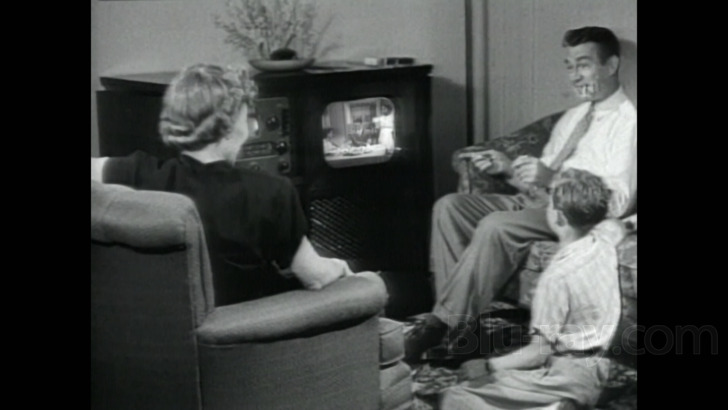
Black and white.
One element of the documentary which is harrowing to watch now is the clips highlighting The Cosby Show. Given what happened with Bill Cosby in the wake of the documentary, it's heartbreaking these clips are now given a dark under-current. No fault to Marlon Riggs or to anyone else involved in the documentary: it nonetheless is difficult to watch these scenes given the horrors of Bill Cosby.
The documentary includes interviews with a number of intelligent and thoughtful participants: Steven Bochco, Ruby Dee, Diahann Carroll, Henry Louis Gates Jr., Norman Lear, Sheldon Leonard, Hal Kanter, Denise Nicholas, Alvin F. Poussaint, Tim Reid, Daphne Reid, Esther Rolle, and David L. Wolper. These participants provide the documentary with a great wealth of insights. An eclectic ensemble.
The documentary has compelling production attributes. The music by Mary Watkins (Unlocking the Heart of Adoption, Freedom on My Mind) fits the tone of the material well. The cinematography by Michael Anderson, Rick Butler, and Robert Shepard provides the film with a unique visual approach. The expert editing of Deborah Hoffmann (Long Day's Journey Into Day, The Times of Harvey Milk) is impressive: providing Color Adjustment with the ingredients necessary to help make a difference.
Marlon Riggs' is one of the best voices in documentary filmmaking: imbuing the film with a passion for change and for forward-thinking. Riggs always pushed to make society better – not only for the black gay men at the heart of many of his productions – not only for African Americans – but for everyone in our society. Color Adjustment is essential.
Color Adjustment Blu-ray Movie, Video Quality 
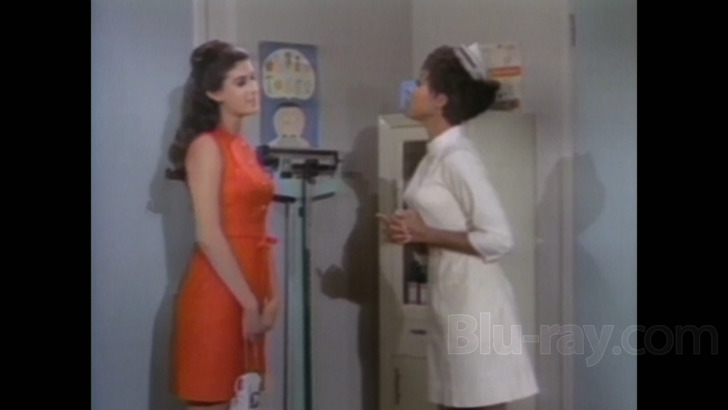
Arriving on Blu-ray from the Criterion Collection, Color Adjustment is presented in the original aspect ratio of 1.33:1 full frame. The film has received a new high definition digital master. The encoding is decent and a nice step-up over a standard DVD. Despite the obvious standard-definition source limitations, the encode has fewer compression woes. Color and detail are limited. However, Color Adjustment looks perfectly fine overall. A decent presentation.
Color Adjustment Blu-ray Movie, Audio Quality 
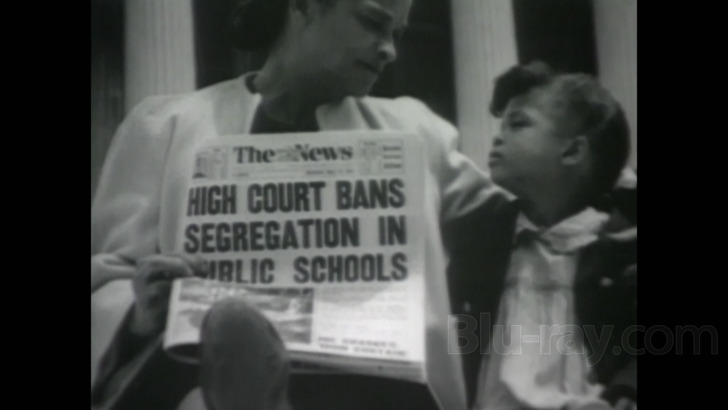
The release is presented in uncompressed PCM 2.0 stereo. The lossless audio track is preserved in 24 bit depth. The high-resolution audio encoding preserves the original sound design. The track has a limited dynamic range but the audio quality never struggles to convey the filmmaking. The audio sounds perfectly fine throughout the presentation. Dialogue is clear and easy to understand.
Color Adjustment Blu-ray Movie, Special Features and Extras 
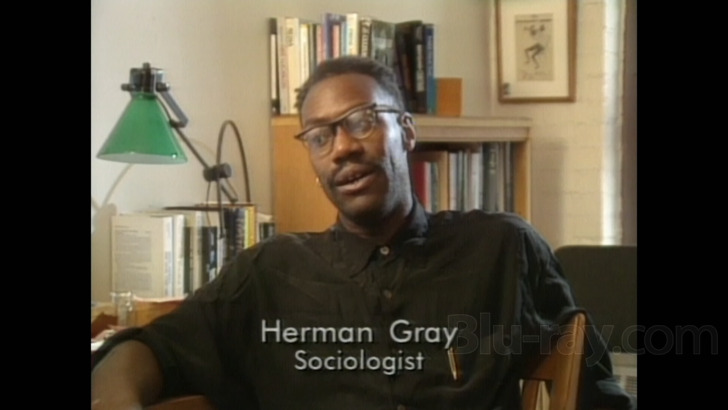
To find out more regarding the supplemental features in The Signifyin' Works of Marlon Riggs collection, please refer to the main review page for the release.
Color Adjustment Blu-ray Movie, Overall Score and Recommendation 

Color Adjustment is an essential documentary exploring the shifting cultural values depicted in TV. Black Americans began to have more positive depictions in television by the end of the 1980's (following decades of negative depictions and recurring stereotypes). The film also highlights contrasting values between reality (the treatment of black people in news-footage) compared to television depictions (such as happy black-maids serving white families). Color Adjustment is an important work: a documentary that should be shown in learning institutions all across America for years to come.
Similar titles
Similar titles you might also like
(Still not reliable for this title)

Black Is... Black Ain't
1995

Ethnic Notions
1986

Affirmations
1990

Non, Je Ne Regrette Rien (No Regret)
1993

Anthem
1991

Tongues Untied
1989

Encounters at the End of the World
2007

The Last of the Unjust
Le dernier des injustes
2013

The Story of Film: A New Generation
2021

Minding the Gap
2018

And Everything Is Going Fine
2010

British Sounds
See You at Mao
1969

Grey Gardens
1975

Symbiopsychotaxiplasm: Take 2½
2005

Tiny: The Life of Erin Blackwell
2016

Cameraperson
2016

Paris Is Burning
1990

Symbiopsychotaxiplasm: Take One
1968

Gates of Heaven
1978

Notfilm
2015